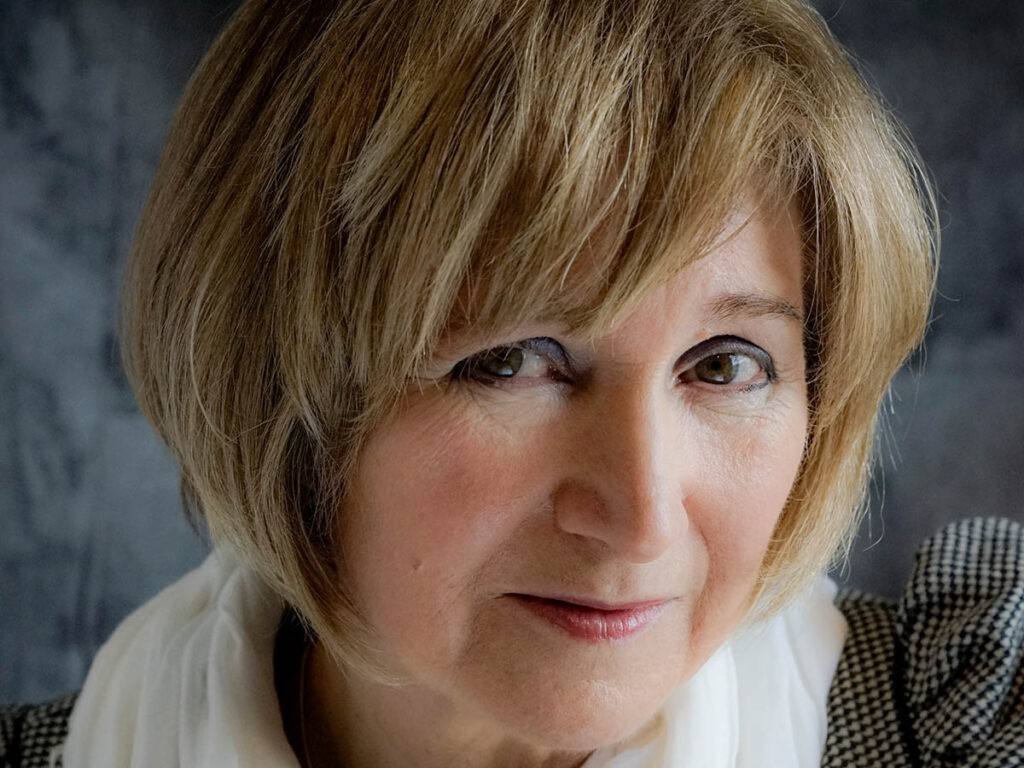The Chamber of Faro will award the writer Lídia Jorge the first Medal of Free Freedom, a distinction “of merit and honor” created this year by the municipality, as part of the celebrations of the 50th anniversary of the 25th of April.
The choice of the Algarve writer to be the first personality to receive this medal was unanimously approved by the Municipal Assembly of Faro.
The award was created to be awarded to personalities “whose acts and ways of life were valuable for the implementation, following the April Revolution, of democracy and the values of equality, freedom, justice and the social state”.
According to the Chamber of Faro, the justification for the choice was the fact that Lídia Jorge is a «distinguished national figure» and a «personality recognized nationally and internationally in a unique way».
The name of the medal is intended to honor the poet from Faro António Ramos Rosa and his work of the same name “Poesia, Liberdade Livre”, with the design of the medal being signed by the doctor and plastic artist from Faro Vicente de Brito.
About Lídia Jorge:
Lídia Guerreiro Jorge, was born in Loulé, Boliqueime, on June 18, 1946.
She graduated in Romance Philology, at the Faculty of Arts of the University of Lisbon, having been a secondary school teacher in Portugal and in Angola and Mozambique, during the last years of the colonial war, beginning to publish in 1980.
He was a member of the High Authority for Social Communication, was a member of the General Council of the University of Algarve and is currently a member of the State Council (2021-2026), appointed by the President of the Republic Marcelo Rebelo de Sousa.
We also highlight his recognition by academia, with chairs at the University of Geneva, the University of Massachusetts Amherst and the Federal University of Goiás, and we highlight the recognition of the University of Algarve, which awarded him, in 2015, an Honorary Doctorate.
With an unparalleled personality and spirit, she was decorated with the Grand Cross of the Order of Infante D. Henrique of Portugal (9 March 2005), decorated as Dame of the Order of Arts and Letters of France (13 April 2005) and elevated to Officer of the French Order of Arts and Letters (July 14, 2015).
The recognition of his work has had a national and international impact, with him being awarded numerous literary prizes since 1981, with special emphasis on the Médicis Prize for best foreign book, with his book Misericórdia (2023), the first work in the Portuguese language. to receive this distinction.
Her literary career placed her, in 2013, in the French magazine Magazine Littéraire, as one of the 10 most important voices in foreign literature, alongside international literary figures such as Zadie Smith, Richard Powers, Mo-Yan (Nobel), Alice Munro, Orhan Pamuk (Nobel), Laura Kasischke, Enrique Vila-Matas, John Irving and Arnaldur Indridason.
His work, whose style is described as “superb, Manueline” by Joseph Macé-Scaron, has been translated into more than twenty languages, is vast and deeply eclectic, includes novels, short stories, children's literature, essays, plays, poetry and chronicles, also writing regularly for Jornal das Letras, Público and El Pais.
The theme of his work is, of course, related to his past in Angola and Mozambique during the period of the colonial war and is intrinsic to the reality of Algarve society in the period before and after the April revolution. Thus, the colonial and dictatorial past, the Algarve, the meaning of revolutions, generational conflicts, family ruptures and the female condition are constant themes. In fact, in 2022, Lídia Jorge will be awarded the 25 Club Award (Spanish feminist association) which distinguishes women who stood out in the fight for equal opportunities.
The raw form, the atmosphere of magical realism and the narrative plans with a polyphonic structure, in which the characters take on a metaphorical dimension, with special emphasis on female characters, demonstrate the relationship that Lídia Jorge imprints in her works with recent history – especially with society before and after April 25th. The works “O Dia dos Prodígios” (1980) and “Os Memoráveis” (2014) reflect this conclusion.
In these 50 years since the 25th of April, in the solemn session that will take place on the 25th of April at the Lethes Theater, at 14:30 pm, the Municipal Assembly of Faro highlights and humbly honors, with the awarding of the Medal of Free Freedom, Lídia Jorge, a woman, from the Algarve, Portuguese, but above all, from the world, with the determination of the values of April.
The chronicle of the pre- and post-April revolution period in his work will leave the history of Portugal marked and marked for current and future generations, ensuring that history will not be forgotten. His contribution and legacy to democracy, equality and freedom will, in a simple way given the enormity of his character, be highlighted and will also be enshrined in the history of Faro.



















Comments